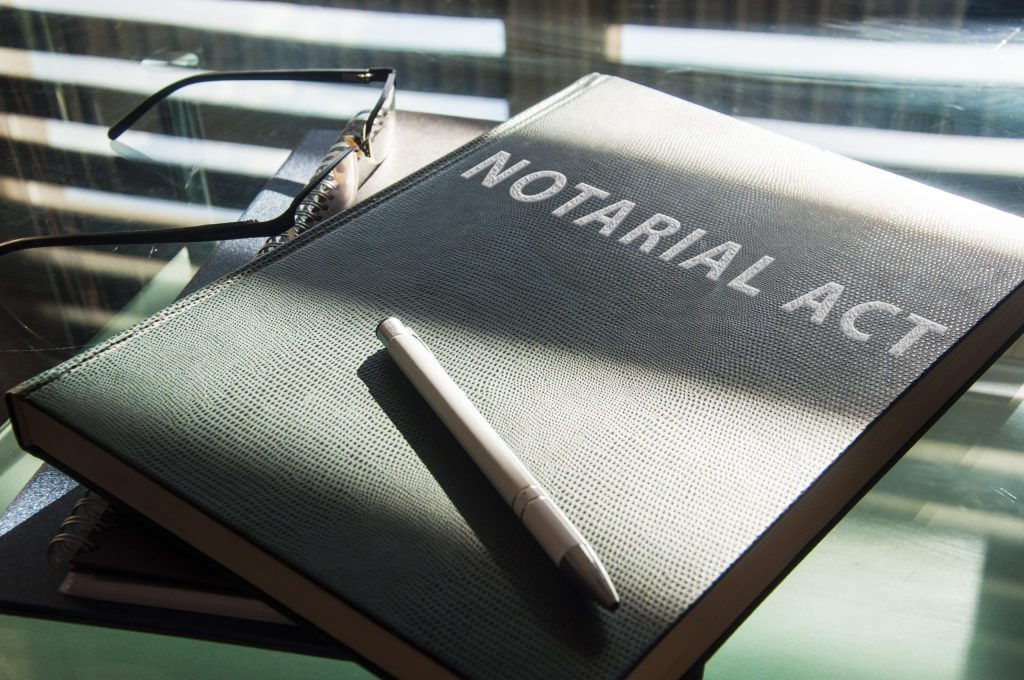In Arizona (as in most states) a will must be witnessed to be valid. Having your will notarized does not satisfy the requirement. Unless, that is, the courts approve the notary as witness.
Actually, we started with a little misdirection. Not every will has to have two witnesses. Let’s explain. But first let us remind you: we are talking about Arizona law here. If you live in another state, ask a local lawyer before trusting that the rules are the same.
Basic rules about wills
A will requires two witnesses. That’s the first rule. In Arizona, the two witnesses need to have either watched the signing, or heard the signer declare that the signature was his (or hers).
Actually, you don’t need two witnesses to your will. You can have a will with no witnesses at all — provided that it is in your own handwriting. Not every state recognizes holographic wills, but Arizona does.
Suppose you write out a will, entirely in your own hand, and sign it. Then you get two witnesses. Is it a holographic will? No. It is a witnessed will (but we’ll probably have a hard time reading it — that’s a different issue).
The role of a notary public
Now suppose you prepare a will on the computer, print it out, and have it notarized. Is that valid? Not in Arizona — at least not without more.
Notarization does not improve the quality of a will, or substitute for the two witnesses required. It does, however, open up today’s topic: the notary as witness.
Suppose you typed out your will and then took it and your best friend to a notary public. You signed the will and asked your friend to sign as a witness. Then the two of you had your signatures notarized. Is that will valid?
It might be. In a number of states, the courts have ruled that a notary is also a witness. With your best friend’s signature, the notary provides the necessary second witness and the will is valid. Arizona had not adopted that rule, however, until last week.
The notary as witness
Barbara Bradley, age 76 and terminally ill, signed a will in northwest Arizona in 2016. She left everything to her boyfriend Billy and two step-daughters. Billy and a notary public were both present in her home when she signed. The notary carefully interviewed her outside Billy’s presence, decided that she knew what she was doing, and watched her sign. Then Billy signed, and the notary signed an acknowledgment that she had identified both signers.
Ms. Bradley died two weeks later. Her estranged son Timothy objected to the will, arguing that it did not have two witnesses. In fact, he argued that Billy should be precluded as a witness because he was a beneficiary; that argument was resolved against him very quickly, however.
The probate judge in Mohave County, Arizona, nonetheless ruled that the document Ms. Bradley signed did not qualify as a will. Why not? Because it only had one witness. There was no doubt that it represented Ms. Bradley’s wishes, or that she was competent when she signed it. It just wasn’t a will.
The Court of Appeals decision
The Arizona Court of Appeals disagreed with the local probate court. The appellate decision focused primarily on the issue of a notary as witness.
According to the Court of Appeals, a notary can also serve as a witness to the signing. The whole point of a witness requirement is to determine that the signer was who he or she said they were, and actually signed the document. That’s exactly what a notary attests to when acknowledging a signature.
In this case, in fact, the notary testified in the probate proceeding. She told the probate court that she had watched Ms. Bradley sign, and had notarized the document after both she and the boyfriend signed.
The Court of Appeals also noted that a number of other state courts have addressed the same issue, and most or all have allowed a notary to act as a witness. The decision particularly cites cases in Illinois, Kentucky, Missouri, Nevada, New Mexico, North Carolina, Texas, Utah, Washington and Wyoming. Only a single Oklahoma case seemed to run against the principle.
Well, two cases, actually. The recent Arizona decision probably overrules an earlier Arizona decision involving a notary as witness. In that earlier case, the court wrote at some length about how the role of a notary is different from that of a witness; in this case, the notary’s very acknowledgment affidavit sounded like a valid will witnessing. Ms. Bradley’s will was valid. Estate of Bradley, April 24, 2018.
Significance of the Bradley decision
What does the decision in Estate of Bradley mean for people signing wills? We think the main message is that you shouldn’t be worrying about whether your have met the minimum witnessing requirements. If you live in Southern Arizona, you should consider hiring a Tucson Elder Law Attorney to prepare your will — and counsel you on whether your estate plan is generally in order.
A number of items were lost in the discussion about the validity of Ms. Bradley’s will. Did she have the most effective method of accomplishing her goals? The language of her “will” as reproduced in the court decision sounds imprecise and tentative. Would it have been clearer — and less likely to be challenged by an estranged son — if she had consulted an attorney? Almost certainly.
Meeting with clients, determining their wishes and preparing effective documents is what we do. It is, in fact, what capable estate planning attorneys around the country do. You might want to consult one of us rather than taking a stab at it yourself.



